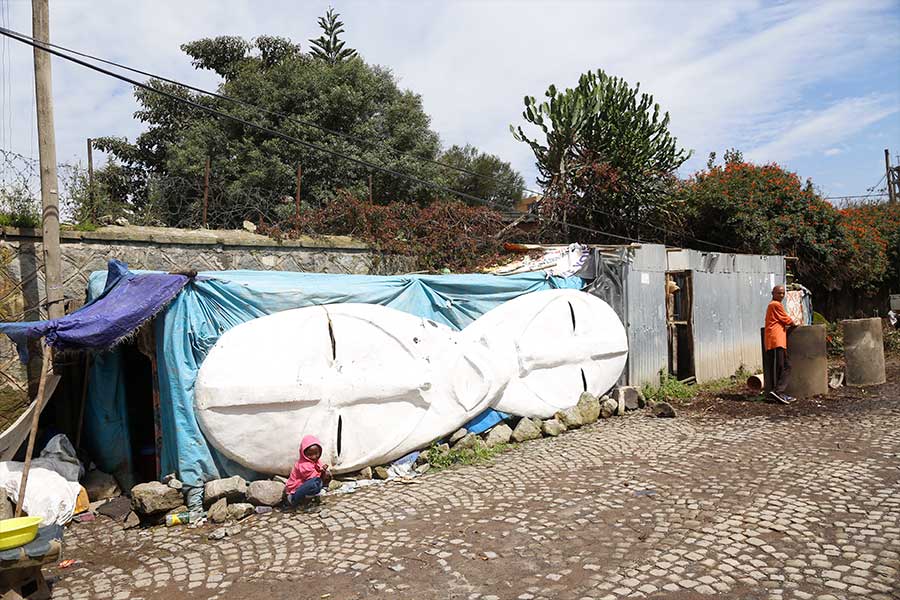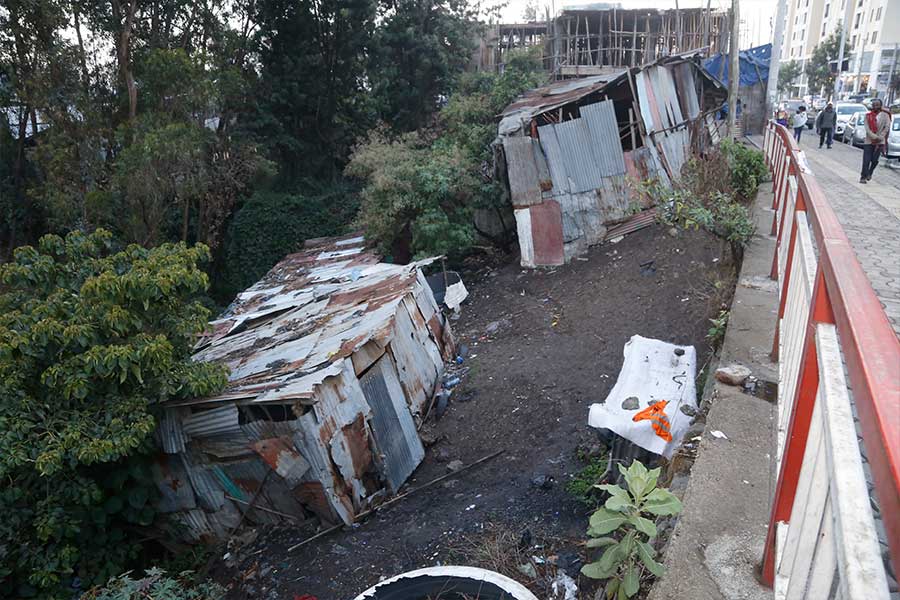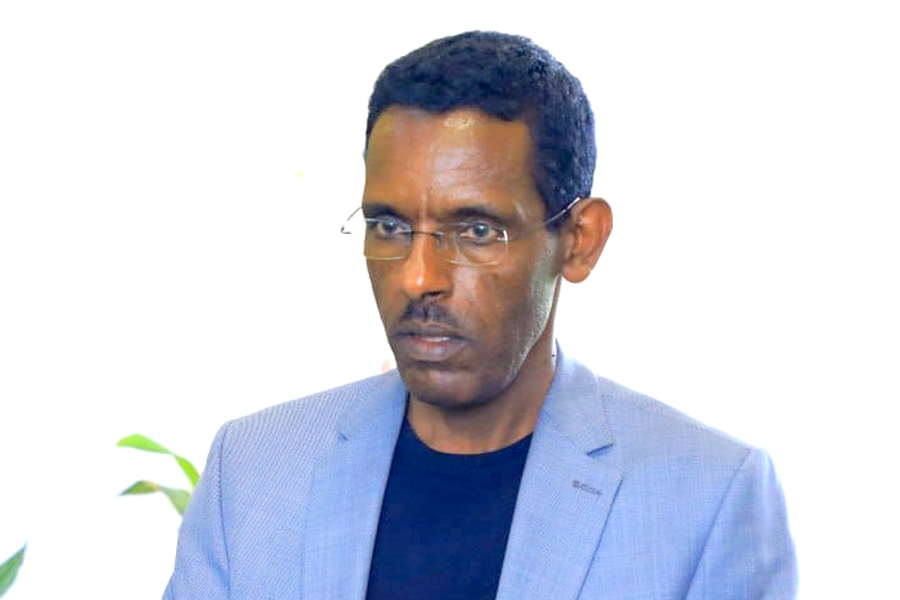
Fineline | May 04,2019
Recently, I was talking with a friend when she mentioned her experience of going to the National Museum in Addis Abeba. She had taken some friends with her as well.
“We left after 10 minutes, because they were so bored. It was not well-curated, and it never changes. It is the same content every day,” she said.
Just a couple of months ago, I, too, had taken friends on two different occasions to the Ethnological and National museums. The content within the museums had more or less remained the same as the last time I had visited them, which was over eight years ago.
Aside from the monotony of the content, what is striking is the semi-derelict condition that parts of the Museum are in. Dust had gathered on irreplaceable artefacts. Information on items in exhibition displays were outdated. Preventative conservation of items was not practised consistently. At the Ethnological Museum, for instance, precious art pieces were on display without glass, exposing rare pieces to damage.
While the museums housed significant items, the institutions themselves feel like relics. Sadly, there has been little evolution here, both in content and in style, across the board.
Unfortunately, these issues are not unique to museums in Addis Abeba or to Ethiopia. Many museums in Africa were established during the colonial period.
Following independence, “African nations witnessed a dramatic increase in the number of Africans receiving higher education and specialised training. Institutions such as museums began to come under the leadership of indigenous Africans but, in most cases, the exhibits and their condition(s) remained the same,” writes researcher Lorna Abungu.
Moreover, in parts of Africa, years of unrest and economic downturn meant that museums were both mismanaged and low in priority on national agendas.
Museums are a tangible part of any city. For many tourists, a visit is never complete without heading to one. Travel sites and guides always have a list of recommended museums to go to. Yet the importance of museums goes beyond the mere must-see needs of the tourism sector.
These institutions are keepers of heritage and legacy. They are windows into the history of humankind and serve as tangible links to our past. In a way, they house the cultural soul of nations.
“Nothing replaces the authenticity of the object presented with passionate scholarship,” said Thomas Campbell, the then-director of the Metropolitan Museum of Art in a Ted Talk he gave. “Bringing people face-to-face with our objects is a way of bringing them face-to-face with people across time, across space, whose lives may have been different from our own but who, like us, have hopes and dreams, frustrations and achievements in their lives.”
Well-managed and well-curated museums are a necessity. They are spaces of informal education as well as tools that shape our society. For nations like Ethiopia, museums are vital. The country’s cultural and natural heritage is both rich and vibrant. Accordingly, museums of the calibre the nation deserves are much-needed.
Ethiopian art and archives, human remains, ceremonial objects and photographs can be found all over the world. In fact, the restitution of looted Ethiopian artefacts scattered across Europe has garnered attention.
In February of this year, Prime Minister Abiy Ahmed saw the return of a rare 18th-century ceremonial crown discovered in the Netherlands 20 years after it went missing.
While this was a story of successful restitution, plundered artefacts stolen by the British army from Ethiopia in 1868 remain housed in the Victoria and Albert Museum, the British Library and the British Museum.
In 1868, the Battle of Maqdala was fought between the British army and the ancient kingdom of Abyssinia. Following the defeat of Emperor Tewodros and his army, hundreds of artefacts were looted by the British. Among the stolen treasures are 11 wood and stone tabots, religious plaques, the return of which Ethiopia has repeatedly asked for. However, the answer has not been positive.
Several African countries have faced similar responses. Up to 90pc of sub-Saharan Africa’s material cultural legacy is outside of the continent, according to a study released by Senegalese economist Felwine Sarr and French historian Bénédicte Savoy.
While the return of looted artefacts will be an ongoing struggle, perhaps now is the time for Ethiopia to rethink and rework its museums. In major cities like Addis Abeba, museums need to become more relevant to foreign visitors as well as local communities. They need to evolve into dynamic centres, hubs that foster dialogue, critical thinking and curiosity.
Alongside increased funding, specialised training of local museum staff and restoration experts is crucial. Advances in technology also mean that museums should reimagine their approach to their exhibits as well as to their audience.
The recent opening of Unity Park at the National Palace and the impressive and uniquely designed Zoma Museum is a step in the right direction. From incorporating technology in to the various exhibits and different mediums used, both offer a rich and memorable experience. Similar efforts must be put into the already existing museums that house rare and precious artefacts. Doing so will help ensure the preservation of our collective story.
PUBLISHED ON
Jun 13,2020 [ VOL
21 , NO
1050]


Fineline | May 04,2019

Radar | Aug 22,2020

Sunday with Eden | Apr 22,2022

Radar | Jun 26,2021

Commentaries | Apr 04,2020


View From Arada | Apr 24,2021

Fortune News | Nov 18,2023

View From Arada | Aug 27,2022

Commentaries | Sep 19,2020

Dec 22 , 2024 . By TIZITA SHEWAFERAW
Charged with transforming colossal state-owned enterprises into modern and competitiv...

Aug 18 , 2024 . By AKSAH ITALO
Although predictable Yonas Zerihun's job in the ride-hailing service is not immune to...

Jul 28 , 2024 . By TIZITA SHEWAFERAW
Unhabitual, perhaps too many, Samuel Gebreyohannes, 38, used to occasionally enjoy a couple of beers at breakfast. However, he recently swit...

Jul 13 , 2024 . By AKSAH ITALO
Investors who rely on tractors, trucks, and field vehicles for commuting, transporting commodities, and f...

Oct 25 , 2025
The regulatory machinery is on overdrive. In only two years, no fewer than 35 new pro...

Oct 18 , 2025
The political establishment, notably the ruling party and its top brass, has become p...

Oct 11 , 2025
Ladislas Farago, a roving Associated Press (AP) correspondent, arrived in Ethiopia in...

Oct 4 , 2025
Eyob Tekalegn (PhD) had been in the Governor's chair for only weeks when, on Septembe...